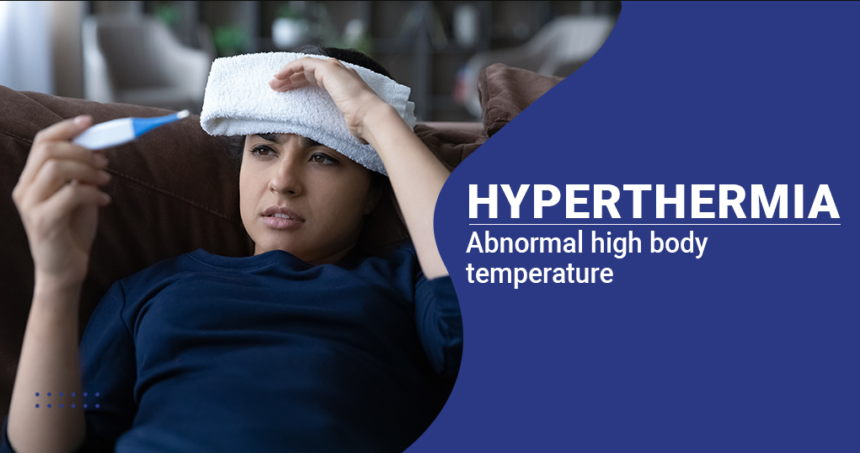Introduction:
Hyperthermia is a group of heat-related conditions characterized by an abnormally high body temperature of more than 100.4°F (38°C). Unlike fever which results from internal sources like infections or drug reactions, hyperthermia occurs when external factors overwhelm the body’s heat-regulation system. In this article, we’ll explore the symptoms, causes, treatments, and risk factors associated with hyperthermia.
Symptoms of Hyperthermia:
The symptoms of hyperthermia vary based on its severity. Here are the different stages and their associated symptoms:
Heat Fatigue and Cramps:
- Excessive sweating
- Flushed or red skin
- Muscle cramps spasms and pain
- Headache or mild light-headedness
- Nausea
Heat Exhaustion:
- Cold pale wet skin
- Extreme or heavy sweating
- Fast but weak pulse
- Nausea vomiting and diarrhea
- Headache
- Muscle cramps
- Exhaustion and weakness
- Intense thirst
- Less frequent urination and dark urine
Heat Stroke (a life-threatening condition):
- Dangerously high body temperatures
- Organ failure risk
- Confusion and altered mental status
- Rapid heart rate
- Dry and hot skin
- Causes and Risk Factors
Common causes of hyperthermia include:
- Spending too much time outdoors in hot or humid weather
- Overexertion during physical activity
- Dehydration due to excessive sweating
- Treatment and Prevention
To prevent hyperthermia:
- Stay well-hydrated during outdoor activities.
- Avoid prolonged exposure to extreme heat.
- Recognize early symptoms and seek medical attention promptly.
Risk factors for hyperthermia include:
Age and Health Conditions:
- Elderly Individuals: Older adults are more susceptible to reduced heat tolerance and impaired thermoregulation.
- Infants and Young Children: Their bodies heat up faster than adults.
- Chronic Medical Conditions: Conditions like heart disease, diabetes, obesity, and respiratory problems increase risk.
Environment and Lifestyle:
- Hot Weather: Prolonged exposure to high temperatures.
- Humidity: High humidity impairs sweating and cooling.
- Physical Activity: Intense exercise without proper hydration.
- Alcohol and Drug Use: These can affect heat regulation.
Medications:
Certain drugs (e.g., antihistamines, diuretics, beta-blockers) interfere with heat dissipation.
Clothing and Hydration:
- Clothing Choices: Dark tight or heavy clothing retains heat.
- Dehydration: Lack of fluids impairs sweating and cooling.
Remember to stay hydrated avoid excessive heat exposure and be mindful of these risk factors. If you have concerns consult a healthcare professional.
How can we better educate people about hyperthermia?
Certainly! Protecting elderly relatives from hyperthermia during hot weather is crucial. Here are some tips to help them stay safe:
- Stay Hydrated: Encourage your relatives to drink plenty of water. Dehydration increases the risk of heat-related illnesses.
- Wear Appropriate Clothing:
- Lightweight and Loose: Wear loose lightweight, and light-colored clothing. This helps with heat dissipation.
- Wide-brimmed Hat: A hat with a wide brim provides shade and protects against direct sunlight.
- Cool Showers or Baths: Cool showers or baths can help regulate body temperature.
- Avoid Strenuous Activities: Discourage intense physical activities during peak heat hours. Rest is essential.
- Check on Them Regularly: Ensure someone checks on your elderly relatives especially if they live alone. Social support is crucial.
Extreme heat affects older adults more significantly so taking preventive measures is essential. If you notice any signs of heat-related illness seek medical attention promptly. How else can I assist you?
Conclusion:
Hyperthermia poses serious risks, especially during hot weather or intense physical exertion. Understanding its symptoms causes and preventive measures is crucial. Remember to stay hydrated take breaks and listen to your body. Let me end with a question: How can we better educate people about hyperthermia and its prevention?






